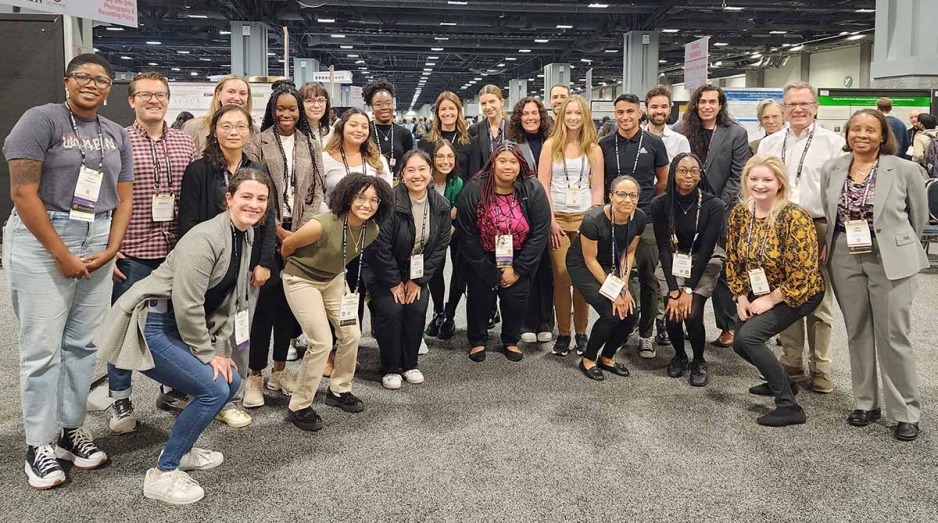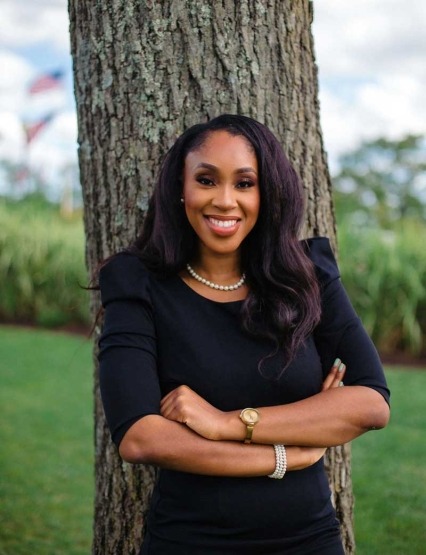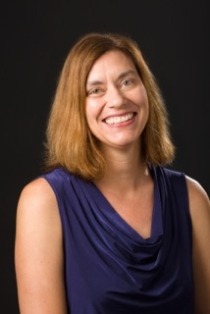What’s New at NIDA
D.C. Area High Schoolers Take on the Society for Neuroscience (SfN) Conference
Since its origin in 2020, NIDA Racial Equity Initiative (REI) volunteers have led activities to support scientific research workforce diversity. Last month, NIDA’s REI Workforce Workgroup, led by Nic Johnston, developed a pilot program to bring bright, motivated students from Washington, D.C. and Baltimore, MD to the 2023 Society for Neuroscience meeting, held in the nation’s capitol. This pilot was organized along with Upward Bound programs, which work with students from disadvantaged backgrounds, providing them with crucial tutoring and mentorship to guide them through high school and college.
The event took place on Saturday and Sunday, November 11th-12th, 2023. Ten students and 5 chaperones attended on Saturday while 3 students and two chaperones returned for additional activities on Sunday. Saturday highlights included: 1) visiting the graduate school fair, the Art of Neuroscience exhibit, and the SfN young investigator lecture, and 2) an informal discussion with the NIDA Intramural Research Program’s senior investigator Dr. Jean Lud Cadet. Sunday’s highlights included 1) the “How I Survived Grad School” panel organized by Black in Neuro and an interactive experience at the poster session and in the exhibit hall. The pilot program was a tremendous success and NIDA is excited to work to continue this effort at future SfN meetings.
NIDA Diversity Scholars Travel Award Program

Congratulations to the 27 NIDA travel awardees who attended the SfN conference! The NIDA Diversity Scholars Travel Award Program provides travel awards to undergraduates, post baccalaureates, pre-docs, post-docs, and Early Stage Investigators to attend national scientific conferences. Awards are intended to encourage networking, presenting of posters, and career development opportunities. The photo above was taken during a Meet & Greet session with NIDA staff members and the travel awardees.
Program Updates
Submit a Letter of Interest for the NIDA Diversity Scholars Network Program
Apply now for the 2024 NDSN program! The goal of the NIDA Diversity Scholars Network Program is to enhance the funding success of early career investigators from diverse backgrounds, including investigators from underrepresented groups. The program provides workshops and supportive coaching as participants prepare a complete research or career development award application for NIDA funding consideration. The program culminates in a mock review meeting, where the participants’ grant applications are reviewed. More information about eligibility and how to submit the letter of interest can be found on the NDSN website. The deadline to apply for the 2024 NDSN Program is January 12, 2024. See the website and FAQs for more information.
Apply for the NIDA Summer Research Internship Program
Calling all undergraduates! The NIDA Summer Research Internship Program will soon be accepting applications. Spread the word about this undergraduate addiction research opportunity. The NIDA Summer Research Internship Program supports all undergraduates with a focus on increasing underrepresented students interested in substance use and addiction research. Through this program, students aged 18 years and older are introduced to the field of substance use and addiction research by working in research internships with NIDA funded scientists at universities across the United States. The on-site internship could include laboratory experiments, data collection, data analysis, formal courses, participation in lab meetings, patient interviews, manuscript preparation, and more. To apply and view program information, see the NIDA Summer Research Internship Program website. Applications will be accepted from December 18, 2023 – February 2, 2024.
Supplemental Funding Available to Support DEIA Mentorship
NIH recently reissued its Notice of Special Interest (NOSI): Administrative Supplements to Recognize Excellence in Diversity, Equity, Inclusion, and Accessibility (DEIA) Mentorship. This award will support program directors and principal investigators who have demonstrated compelling commitments and contributions to mentorship and DEIA in the biomedical sciences. Because such efforts are not always appropriately recognized or compensated, this NOSI aims to reach individuals with limited NIH support.
The NIH will award up to $18 million in supplemental funding in Fiscal Year 2024, contingent upon NIH appropriations. Applicants may request up to $250,000 in direct costs per year for one or two years, depending on institution type, not to exceed the direct costs of the parent award. Applications are due February 16, 2024. Review the NOSI for eligibility information and application details.
For more information on NIDA Funding Opportunities, visit the Funding Opportunities at NIDA webpage. For a full list of NIH training, fellowship, career development, and research education funding opportunities including parent announcements, please visit and subscribe to the NIH Guide to Grants and Funding.
Career Development Spotlight: Dr. Ijeoma Opara

The NIDA ORTDD is thrilled to introduce Dr. Ijeoma Opara, Associate Professor in the Department of Social and Behavioral Sciences at Yale School of Public Health.
Dr. Opara is also the Director and Principal Investigator for the The Substances and Sexual Health (SASH) Lab, as well as the Associate Director for the Justice, Community Capacity & Equity (JuCCE) Core Center for Interdisciplinary Research on AIDS.
Her research is centered around HIV/AIDS, STI, and substance use prevention for urban youth, racial and gender specific prevention interventions for Black girls, and community-based participatory research with urban youth. Dr. Opara has received several awards for her work in prevention research from the American Public Health Association, National Council on Family Relations, and AcademyHealth. This year, Dr. Opara was named the 2023 recipient of the NIDA Racial Equity Initiative Racial Equity Visionary Award to conduct community-based participatory work in Paterson and East Orange, New Jersey. We asked Dr. Opara to share a little about herself, what motivates her, and some words of wisdom to the NIDA research training community.
- Please share a little about yourself, your upbringing, your educational background, and research focus.
I grew up in Jersey City, NJ which is an urban city in Northeast NJ. I was born to Nigerian immigrants who unfortunately died very early in life. My mom died from complications of diabetes at 46 years old and my dad died at 57 years from a heart attack. Their deaths influenced my passion to work towards ending health disparities that impact Black people in the U.S. I received my bachelor's degree from New Jersey City University in Psychology, Master of Public Health in Epidemiology from New York Medical College, a Master of Social Work from New York University and a PhD in Family Science in Human Development from Montclair State University. While I was a PhD student, I was funded by a NIDA funded training grant (Behavioral Sciences Training in Drug Abuse at NYU), which funded my last two years as a PhD candidate, provided me with grant writing training, and exposed me to different scholars all in prevention and addiction science. My research focuses on community-based participatory research in youth substance use prevention in urban communities and using strengths-based approaches to substance use and HIV prevention among Black girls. I've received a lot of my attention on my work with Black girls as I not only have a research agenda focused on highlighting strengths of Black girls but I do a lot of outreach with this group as way to influence more Black girls to enter the field of substance use prevention and public health overall. - At what point in your life did you know you wanted to become a scientist? What drew you to the STEM field and particularly substance use/addiction research?
When I was a social worker, I worked primarily with youth and families as a youth and family therapist in NYC for an alternative to incarceration agency, and I discovered that all the youth I interacted with were using drugs. Some were using occasionally out of peer pressure, others were addicted and didn't know how to stop. Many were using drugs as a way to cope with the stress of being exposed to violence in their neighborhoods, grief, lack of family relationships and anxiety. They did not have the resources or adequate support to address those underlying issues which led them to using substances they were exposed to. I saw this and realized that I wanted to do more to support youth to receive the support they needed and to end the addiction crisis that we are facing. I knew from my work as a youth and family therapist, the importance of community and parent support and wanted to obtain more training on how to infuse families in this work in order to achieve more positive outcomes. because of my experience as a social worker and therapist, I pursued a PhD in Family Science and Human Development at Montclair State University and I was placed to work with Dr. Robert J. Reid, who had a SAMHSA funded lab that focused on community coalition building in youth substance use prevention in Paterson, NJ. I received excellent training in Community based participatory research methods and made strong connections in the City of Paterson. It was also from there that I realized some of the gaps that were missing in the substance use and addiction field that weren't being addressed for urban youth. From there, I committed my career to working with and for urban communities like Paterson, NJ to achieve health equity and reduce substance use. - What has been the most challenging obstacle you have had to face throughout your career journey to becoming a scientist and what have you done to push through?
When I was a master’s student, I knew I wanted to pursue a PhD, but felt like I needed research experience. It was difficult to find mentors that were willing to support and teach me and give me opportunities. But I persisted and eventually found some mentors that were willing to let me learn how to publish with them and guide me through the PhD progress. Because of this experience, when students reach out to me to join the SASH lab, I tell them that depending on the role, they don't need to have research experience. What's more important to me is how passionate they are about addressing health disparities and ending addiction. Any person who is passionate about these topics—will be willing to learn. I can teach anyone how to be a researcher but I can't teach them how to be passionate about these topics. I want to give others the chance to enter into this field because we need more diverse and passionate voices in substance use prevention research. - What is the best advice you have received from a mentor or colleague?
I received two pieces of advice from two different mentors that I use everyday. First one is: Always think about how your work will impact real people and provide real solutions. Forget about what seems like the hot topic and where the funding is going, your work should inspire people and make a difference in the world. My PhD program advisor gave me that advice and it's been the guiding principle of my career. Because of this, I think about the implications of every single study I design, every paper I write, and every grant I write. I want to see solutions in communities and not keep investigating the same problems.
The second piece of advice comes from another mentor who told me to always keep my eyes focused on what’s ahead of me and block out the noise. As a successful Black woman, many people have things to say. And those things can be distractions that can block you from your purpose. I know my purpose and calling in life is to do this work for youth, so I do my best to block out the noise and stay focused. - What advice would you give to early career scholars experiencing imposter syndrome?
No one will believe you belong here if you don't believe it first. Once you believe it, all other opinions will not matter. Being the "first" or one of the "first" or the "only" can be challenging because society is not used to seeing you in these spaces and it is their default to make you feel like you do not belong here. But remember, you do belong! your presence has the potential to impact an entire generation after you! - Is there anything else that you would like to share with the NIDA community about your inspiring journey?
I am grateful for the support I have received from NIDA such as from the T32 and my current DP1 Pioneer grant through the Racial Equity Initiative. The work I do can be seen as unconventional as it's primarily in real communities, but am grateful for the funding support I have received in doing this work and bringing in members of the community to partner with me.
Did You Know?
Upcoming Webinar
A webinar on Intervention Research to Improve Native American Health (IRINAH) Program is scheduled for January 25, 2024 at 1:00-2:30pm EST to discuss the new Notices of Funding Opportunity (NOFOs)—R01 PAR-23-298, R21 PAR-23-299, and R34 PAR-23-285.
Webinar Goals
- Explain the goals and objectives of the NOFOs
- Highlight what’s new with the IRINAH NOFOs relative to prior IRINAH NOFOs, including the addition of an R34 mechanism and non-responsiveness criteria
- Answer questions from attendees
Webinar Information
- To join the webinar, registration is required.
For more information about IRINAH, please visit the IRINAH website.
Questions?
Contact Dr. Alexa Romberg at alexa.romberg@nih.gov or Dr. Sarah Vidal at sarah.vidal@nih.gov.
Briefing on NIH's Simplified Peer Review Framework for NIH Research Project Grant (RPG) Applications: for Applicants and Reviewers
On Friday, November 3, 2023, a webinar took place on the NIH’s simplified peer review framework for NIH Research Project Grant (RPG) applications. This webinar provided an overview and answered questions regarding the simplified review framework for the review of most research project grant (RPG) applications. The new framework will go into effect beginning with submissions with due dates of January 25, 2025. This webinar provided a high-level overview of the changes included in the new framework. As we get closer to January 2025, the community can expect follow-up webinars for applicants and reviewers with additional details on implementation. See the PowerPoint slides and YouTube recording.

NIDA HIV Seminar Series
Join the NIDA HIV Research program on January 24th at 1:00pm Eastern time for another intallment of their quarterly Seminar series, “Integrating Addiction and HIV Prevention and Treatment for Everyone and Bringing it to Where They Live,” presented by Sandra Springer, M.D. Dr. Springer is a Professor of Medicine at the Yale School of Medicine. Her research integrates aspects of substance use and infectious diseases, with a focus on opioid use disorder treatment and the treatment and prevention of HIV among people with carceral experience. If you would like to attend, please register now.
